We've all been thereâmissing an important interview can feel like a huge setback, but how you handle it can make all the difference. Apologizing sincerely and professionally is the key to mending the situation and maintaining a good impression with prospective employers. In this article, we'll provide you with an effective template for crafting an apology letter that conveys your regret and demonstrates your genuine interest in the opportunity. So, if you're ready to turn this situation around, read on for tips and insights that can help you make a positive impact!
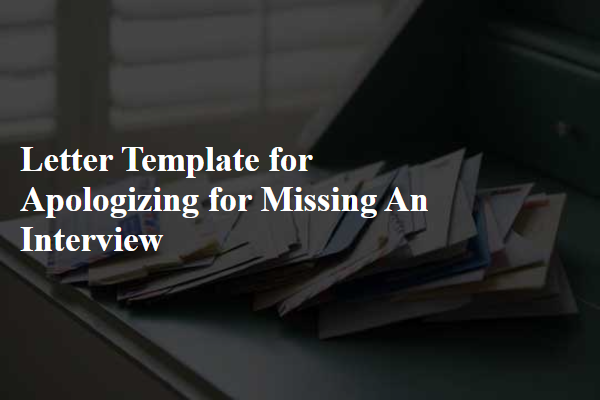
Subject Line Optimization
Apologizing for missing an interview can be a delicate situation, particularly in a competitive job market. A clear and concise subject line can set the right tone for your message. Consider using phrases such as "Apology for Missing Our Interview" or "Sincere Apologies for the Interview Absence." Including the date of the scheduled interview can also provide context, such as "Apology for Missing Interview on [Date] - [Your Name]." This specificity helps ensure that your email stands out while conveying professionalism and courtesy. Focus on expressing genuine regret and understanding of the inconvenience caused to the interviewer.
Tone and Language Formality
Missing a scheduled job interview can create significant ramifications for applicants. Circumstances such as unforeseen emergencies, health issues, or scheduling conflicts often lead to such situations. In professional settings, especially within competitive industries like technology or finance, timely communication remains crucial. A formal apology should include a clear acknowledgment of the missed opportunity, a brief explanation of the circumstances, and a request for a rescheduling, emphasizing continued interest in the position. Such etiquette not only reflects professionalism but also reinforces the importance of the potential employer in the applicant's career aspirations.
Expressing Sincere Apology
Missing an interview can have significant implications for a job applicant's prospects. A sincere apology should acknowledge the impact of the absence, showing respect for the time and effort invested by the employer. Timely communication (within 24 hours of the missed appointment) is crucial for maintaining professionalism. Including a brief explanation, such as an unexpected emergency or scheduling conflict, may help contextualize the situation, but it should not come across as an excuse. Offering to reschedule demonstrates genuine interest in the opportunity. Expressing gratitude for the understanding of the interviewer reinforces the applicant's appreciation for their consideration in the hiring process.
Providing a Valid Explanation
Missing an interview can lead to feelings of regret and concern about potential consequences. A sincere apology email can help maintain professionalism. Valid explanations, such as emergencies or unforeseen personal matters, should be clearly communicated. Specifying the role applied for, such as Marketing Manager at Tech Innovations Inc., adds context. Mentioning the interview date and time emphasizes the importance of the opportunity. Proposing a follow-up meeting to discuss the position demonstrates continued interest and commitment. Finally, expressing gratitude for consideration maintains a positive tone and fosters goodwill for future engagement.
Offering to Reschedule
Missing an interview can lead to lost opportunities for candidates and companies alike. Job interviews, often scheduled weeks in advance, are critical in assessing potential fit for positions, such as Software Engineer roles at tech companies like Google or Amazon. Candidates may miss interviews due to unforeseen events, like medical emergencies or transportation issues, which can happen anywhere, from bustling cities like New York to remote towns. Reaching out promptly to apologize and express sincere regret is crucial when offering to reschedule; clear communication reflects professionalism in competitive job markets. Offering specific alternative dates and times can facilitate rescheduling and demonstrate commitment to the opportunity. An apology can also reinforce the candidate's interest, showing respect for the interviewer's time and the position's importance.
Letter Template For Apologizing For Missing An Interview Samples
Letter template of courtesy for missing the interview and request for understanding
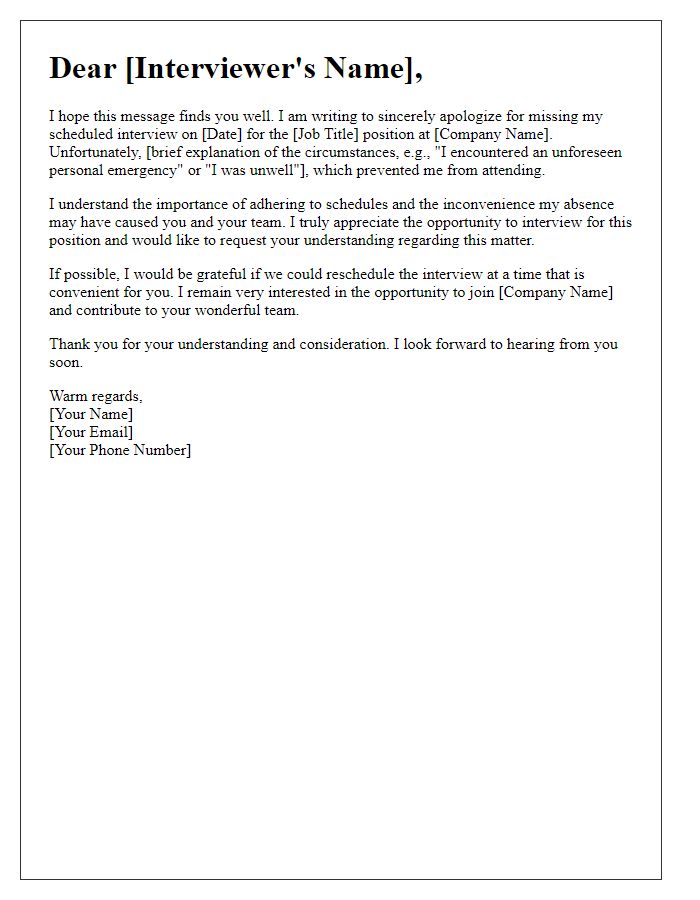
Letter template of professionalism in apologizing for the interview absence
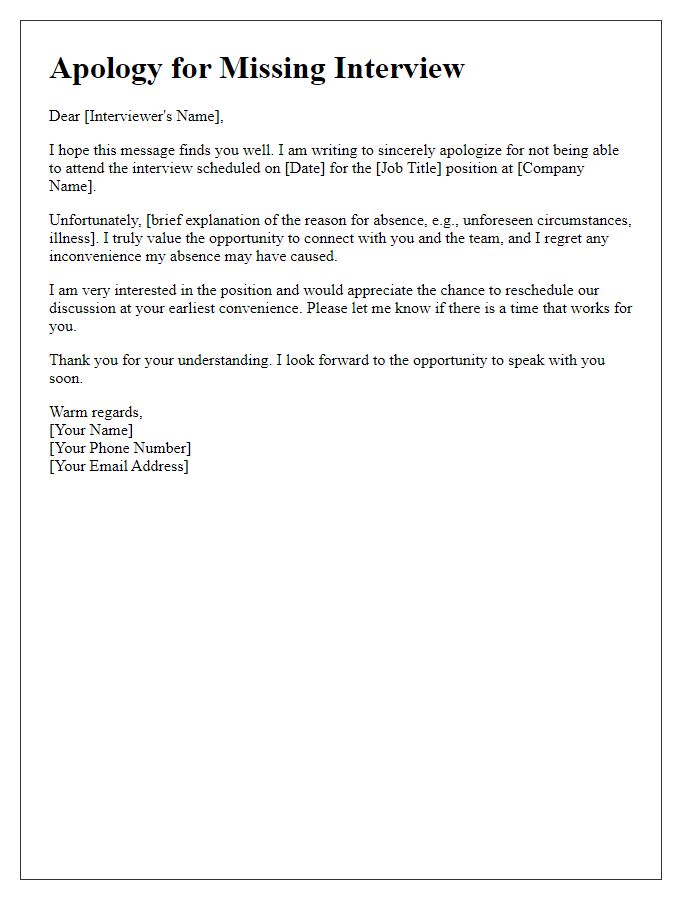

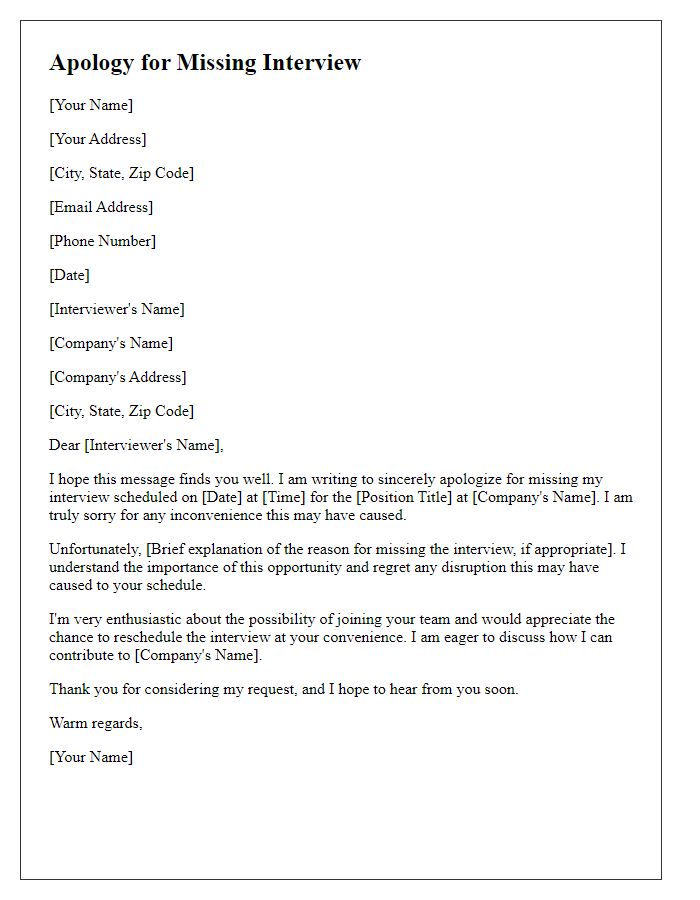
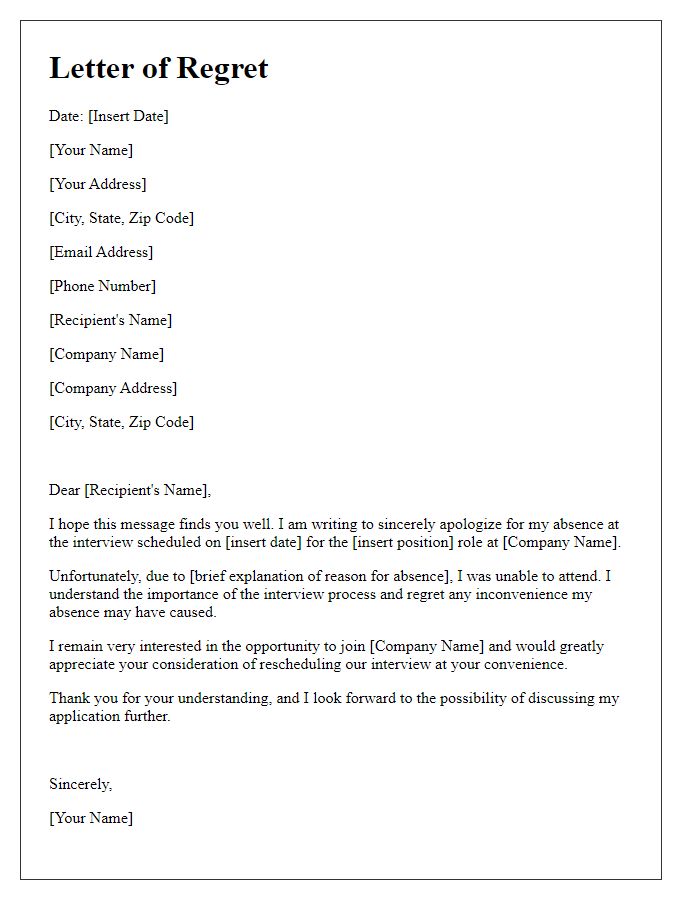
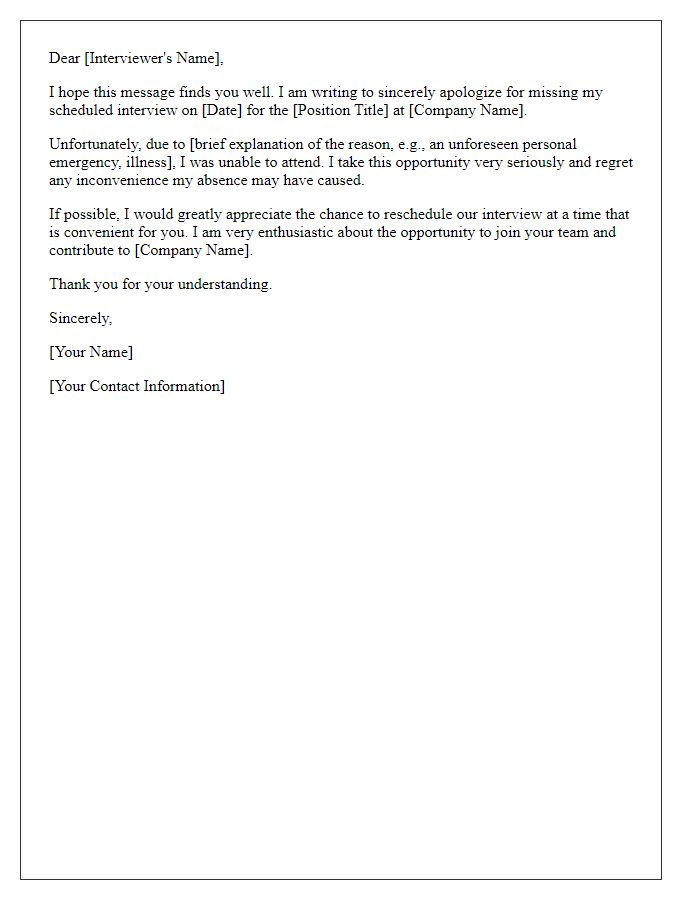
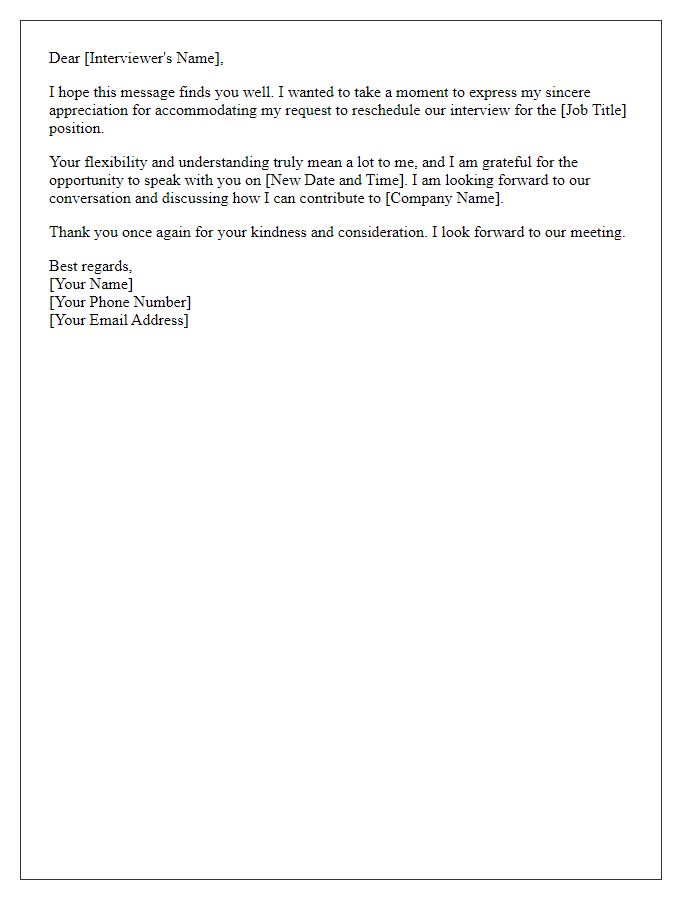
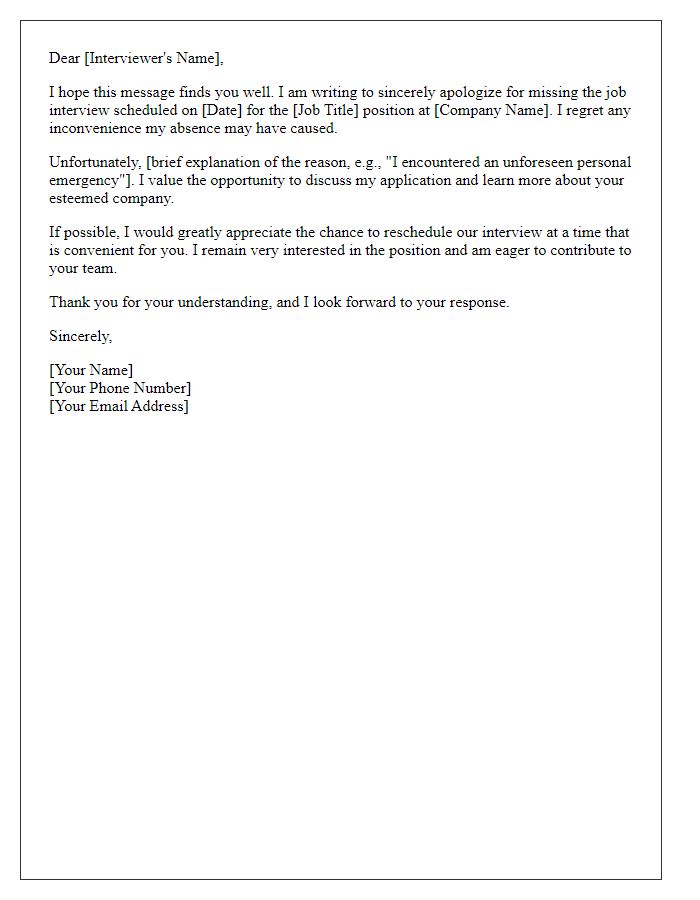
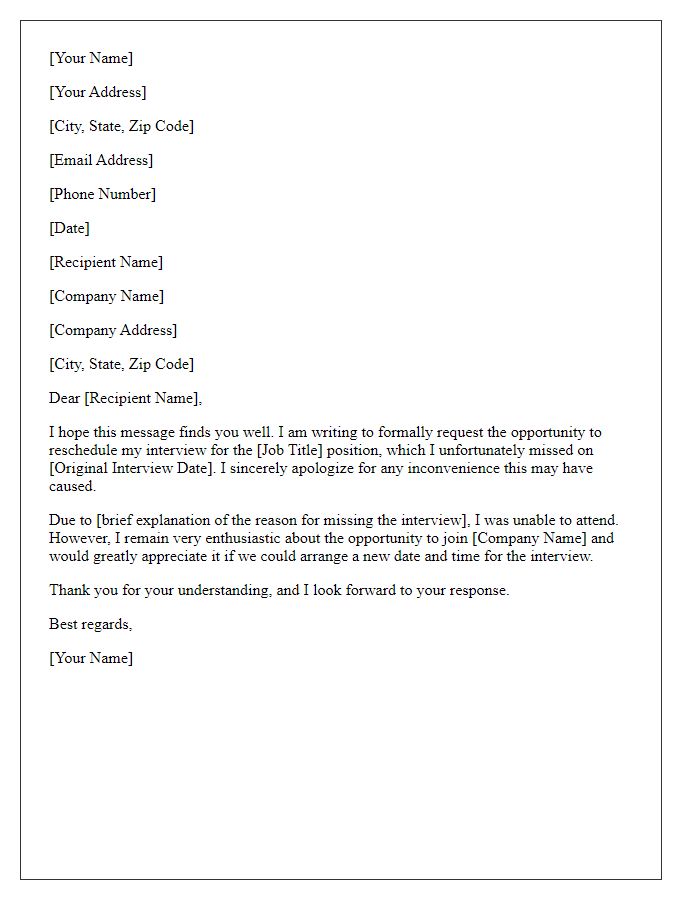
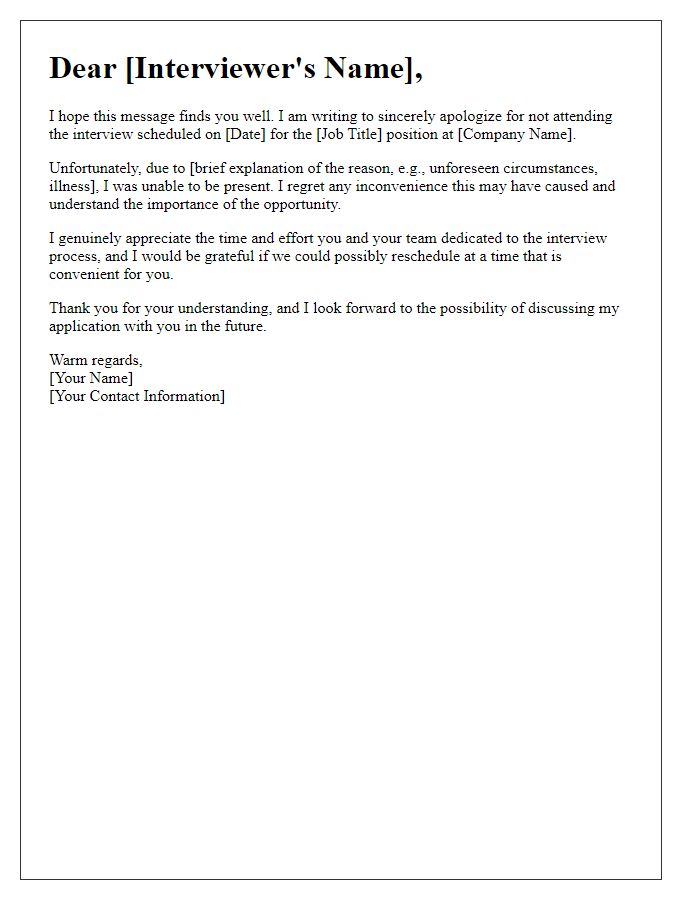
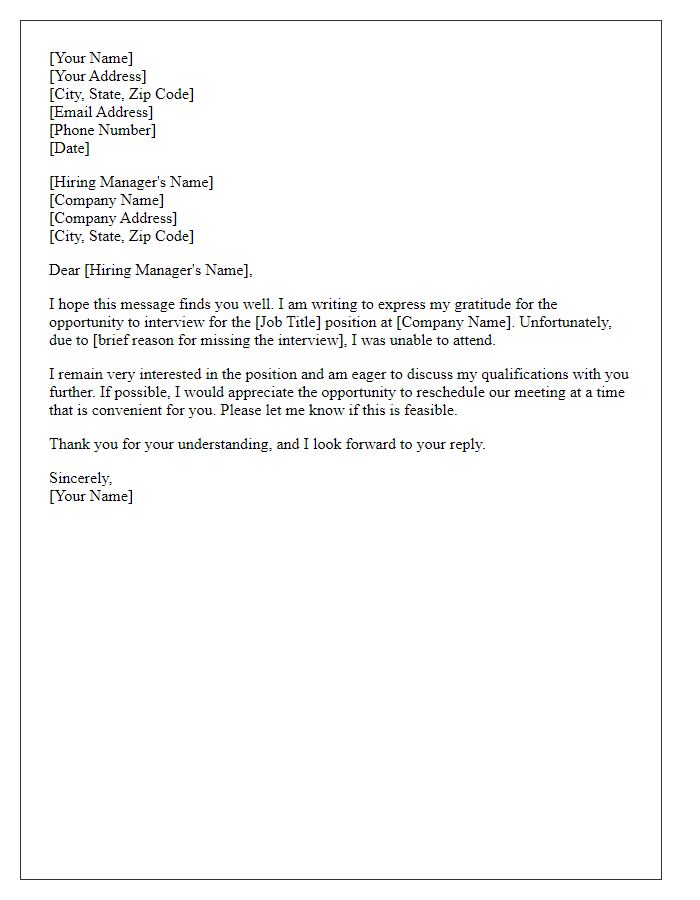


Comments